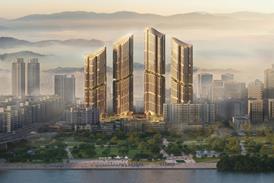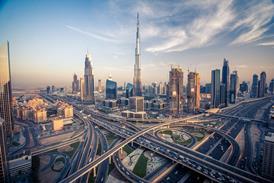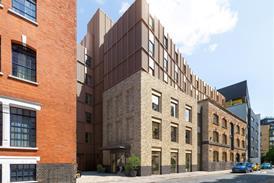Planners must work with these complex entities and stop trying to impose their pocket utopias, says David Rudlin

Not so long ago I was giving a presentation to a group of academics. I was talking about my new book, of which more in moment, and realised I was getting a frosty reception. It was the bit where I was talking about James Surowiecki’s book The Wisdom of Crowds and I realised, as the discussion progressed, that my critics regarded this as a rather right-wing text. Considering myself a left-leaning liberal this worried me.
In the book Surowiecki argues that humans are collectively smart. He starts with the example of a “guess the weight of a hog” competition at a country fair. Even though none of the hundreds of people in the crowd guessed the correct weight of the hog, the average of all of the guesses is almost always right, almost like humans have a collective intelligence. In the book he sets out the conditions that need to be in place for this to work. The crowd must contain a diversity of opinion and must be drawn from range of backgrounds – everyone thinking the same way is not a good thing. Individuals need to come to their view of their own accord without being told what to think or unduly influenced by ideology. Finally there needs to be a mechanism to aggregate the collective view. The most common mechanism to do this is, of course, the free market: hence the frostiness of my academic audience. However my point was that humans have created exactly these conditions in cities. Indeed it could be argued that this is the very reason that cities exist, to make us collectively smarter than we are as individuals.
This has actually been proved by the theoretical physicist Geoffrey West who turned his attention to cities having become frustrated at the lack of research rigour in the urban debate. In his book Scale: The universal laws of life and death in organisms, cities and companies he shows how animals become less efficient as they get larger, as do companies. This is also true of the ageing process with animals and companies being vigorous and innovative when young, but slowing down as they age and eventually die. Crunching the data he puts a figure on this: if you double the size of a company its outputs only increase by 75%. It’s the same with the metabolic rate of animals.
Cities can potentially live forever and the larger they get the more efficient they are
By contrast if you double the size of a city, its outputs increase by 115% - both good ones, like levels of innovation or GDP, and less good things like crime rates. This is very strange. In physics you never get more out than you put in. Cities are thus freed from the process of mortality: there is no inbuilt limit on their scale and no natural lifespan. Cities can potentially live forever and the larger they get the more efficient they are.
The human behaviourist Desmond Morris put it very well in his follow-up to The Naked Ape when he wrote: “Just as nesting sea birds are reproductively aroused by massing in dense breeding colonies, so the human animal is intellectually aroused by massing in dense urban communities. They are breeding colonies of human ideas.”
OK, back to some shameless promotion of my book Climax City, written with Shruti Hemani. In it we seek to apply these ideas to the way we plan cities. We show how through history the collective wisdom of humans has allowed cities (Tokyo is the example we use) to self-organise and to create complex emergent patterns that are remarkably efficient and even beautiful – something we call a climax urban state. But before we get too misty eyed about this we explore how the self-organised city can also have less benign climax states: the slum, endless sprawl or corporate megalomania. Ours is not an argument for unconstrained free markets – we need planning, regulation and taxation. It is just that planners need to stop thinking they can bypass the process of urban growth and replace it with their pocket utopias.
Planning needs to work with rather than against the natural process of growth. It can do this in two ways. The first is through masterplanning, to which we devote a large part of the book. Masterplans (and we really do need a better name!) can be used to shape urban form as a trellis shapes a vine. The second is through planning systems, which we cover in the last part of the book. Complexity theory tells us that systems are shaped by their inputs, a small change to which can transform the emergent pattern. These inputs include human relationships, societal norms, the working of markets and regulation and policy. Planning does not control the system; it is just one of its inputs (we argue that the cul-de-sac is a climax state resulting as much from planning and highway regulations as from market conditions).
So we need to plan cities in a way that encourages our collective intelligence and which allows human settlements to self-organise. This is the job of planners. My left-leaning conscience is clear!
Postscript
Climax City: Masterplanning and the Complexity of Urban Growth – by David Rudlin and Shruti Hemani is published by RIBA Publishing.
















1 Readers' comment